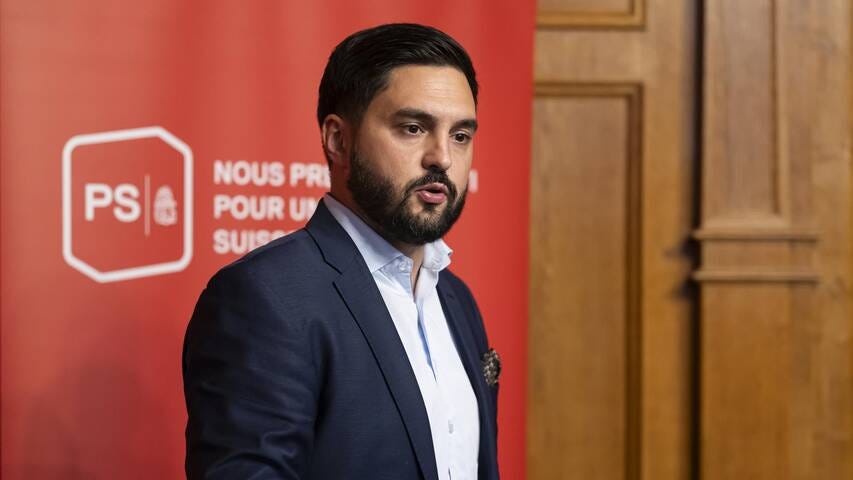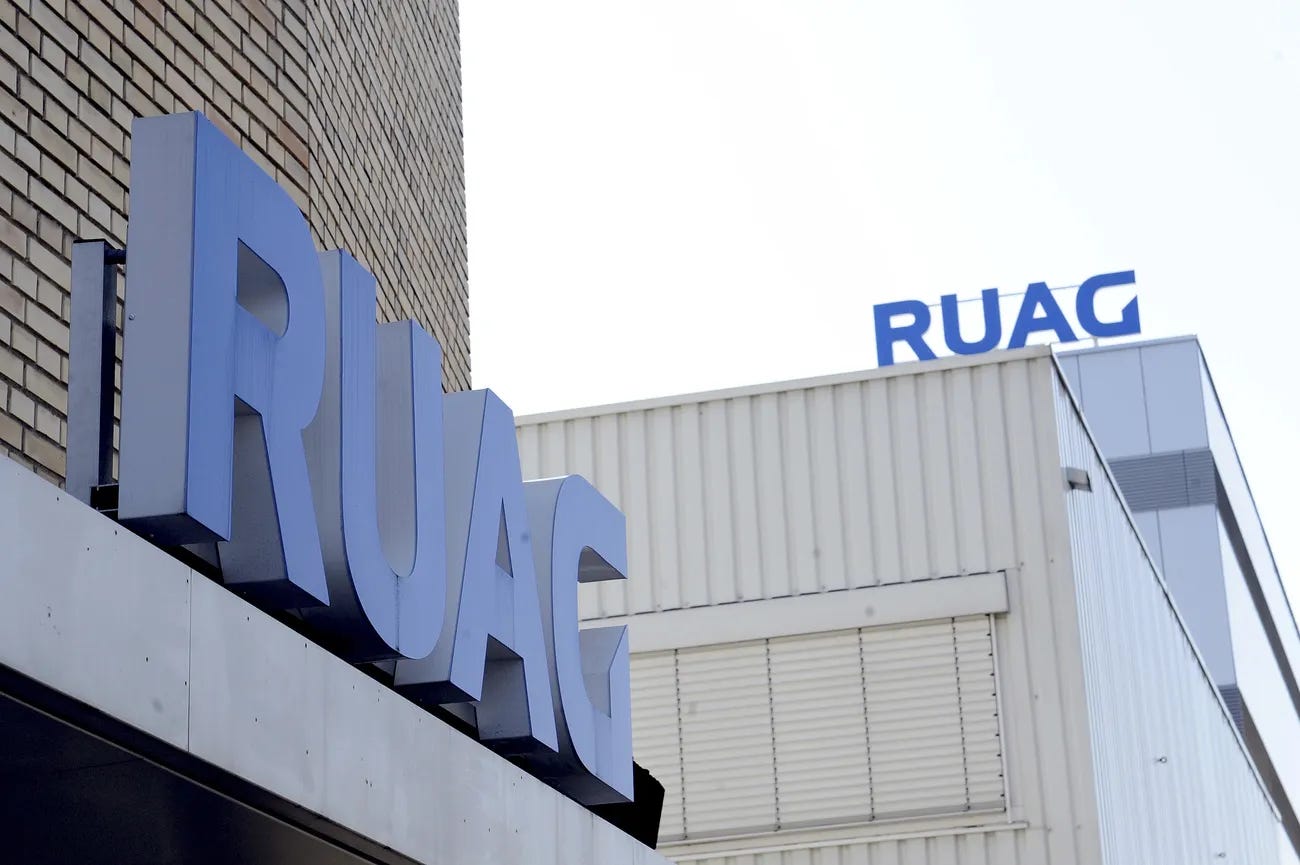Dear Insider,
Power comes in many shapes, sizes and colors.
To some it is the sword. Others believe in the pen.
And still others prefer the kind of power that never has to be exercised…because it is so great.
On many different levels, there are power games being played these days in Switzerland.
Not always so very successfully…
Enjoy,
Ian
P.S. Looking for “even” more?
How about the banks doing crypto in Switzerland, the private clubs where Swiss titans get together…
…and the VC investors making big bets? Check out more Swiss insights here.
💥Quick hits
News bits and bites…short and (sometimes) sweet
Non-power play
Energy is everything - as everyone knows.
Which is why caring for its nuclear plants is no small task, even for a small country like Switzerland.
And this week - it got tricky.
On Sunday, March 23, 2025, at 10:31 p.m., reactor unit 2 of the Beznau Nuclear Power Plant in Döttingen, Aargau, Switzerland, underwent an automatic emergency shutdown, triggered by a failed connection to the 220-kilovolt power grid.
This event follows a previous incident last month, where reactor unit 2 experienced an unintentional rapid shutdown during a routine inspection.
The Beznau Nuclear Power Plant, comprising two pressurized water reactors, is among the oldest operational nuclear facilities globally.
Over the years, it has implemented numerous safety upgrades, including the installation of emergency systems housed in heavily protected structures to ensure reactor safety during extreme external events.
Leveling up
Health care costs in Switzerland are getting (way) out of hand.
Now the government has a solution…kind of.
Switzerland’s Federal Council plans to raise the minimum health insurance deductible, currently CHF 300, for the first time in 20 years.
Supporters argue a hike—possibly to CHF 500—could save up to CHF 1.2 billion and reduce premiums by around 3%.
Critics warn the move would hit low-income, elderly, and chronically ill people hardest, potentially forcing them to delay care.
With 1.3 million people living near the poverty line, the proposal is sure to keep
📰 Person in the news - Cédrich Wermuth
Who doesn’t want to be safe? No one…
But how to make sure that happens is a different question - one that Cédric Wermuth has a surprising answer to.
In an interview with NZZ this week, the Socialist Party co-chair ventured to suggest that Switzerland should help finance NATO.
In his words, Switzerland “obviously” also benefits from the implicit security of the alliance, hence it would be natural to support it financially.
Will Wermuth’s proposition gain any traction? Hard to say…
It will certainly attract fierce opposition from the right side of the political spectrum. SVP and FDP are both traditionally strict supporters of Swiss neutrality.
But SP holds a trump card of sorts - the left-wing party helped elect the new Defence Minister Martin Pfister in the recent election to replace Viola Amherd.
On the other side of the coin - Wermuth also called for an immediate annulation of Switzerland’s contract to purchase American F-35 fighter jets.
Talk about “pushing your luck”…
📱On the phone
What’s one business that (almost) always has customers?
Communications - particularly mobile phones. Duh….
Salt, one of Switzerland’s major telecoms providers is having a fabulous time - even in a crowded market and uncertain times.
(Everyone wants to talk…especially with their friends.)
The numbers prove it:
In 2024, Salt increased its revenue by 1.7% to CHF 1.14 billion.
The EBITDA rose by 1.8% to CHF 586.0 million, maintaining a margin of 51.6%.
The net profit of the parent company, Matterhorn Telecom Holding, climbed nearly 6% to CHF 165.6 million.
Salt added 142,000 mobile subscribers, totaling 1.75 million, with 30,000 new customers in the final quarter.
Broadband customers grew by 42,000 to 265,000.
The one downer?
Accessory sales declined by 11.5% due to reduced smartphone purchases.
Meanwhile, on the infrastructure side, Salt expanded its fiber-optic network to 2.5 million households, aiming for 3 million by the end of 2025.
And all this without a brand partnership with Roger Federer or Marco Odermatt (who support Sunrise…)
📆 Decades of decay
For RUAG, things keep going from bad to worse - again and again.
The Swiss defence contractor has been beset by scandalous fraud in recent weeks and months.
But the rot goes back farther…
In the 2000s, RUAG expanded aggressively by acquiring firms domestically and internationally. A decade later, the strategy shifted, leading to the division of RUAG into RUAG MRO, serving the Swiss Army, and RUAG International, responsible for selling specialized business units.
Despite these changes, scandals involving mismanagement and unethical practices surfaced, spanning from Switzerland to countries like Chile and Thailand.
Recent reports reveal that a former RUAG manager illicitly sold tank parts worth tens of millions of francs without detection by company leadership or federal departments.
Meanwhile, 96 RUAG tanks are deteriorating in northern Italy due to legal restrictions preventing their transfer to Ukraine. These issues have led to political setbacks, including the halted sale of RUAG's space company, Beyond Gravity.
Now incoming Defense Minister Martin Pfister is tasked with addressing these issues, which have reportedly cost taxpayers billions.
Cleaning up the rot will not be easy…
A Chart (or Two) is Worth…
Spending on defence as a percentage of government expenditure is a rising - but still well below comparative levels in other major countries. Historically, the average for Switzerland from 1988 to 2022 is 3.04 percent.
A full 29% of Swiss energy consumption is derived from nuclear power.
The Bonus
🏠 All of us - According to the latest statistics, just over 13’000 Swiss citizens moved out of the country - an increase of 1.6%. (Link)
👀Doubling up - Alarmingly, the number of people officially classified as “overweight” in Switzerland has doubled in the past 30 years, with 43% of the population now so qualified. (Link)
👋🏻Gone forever - Two major Swiss cultural figures passed into eternity recently - composer Pierre Mariétan and writer Peter Bischel. (Link / Link)










